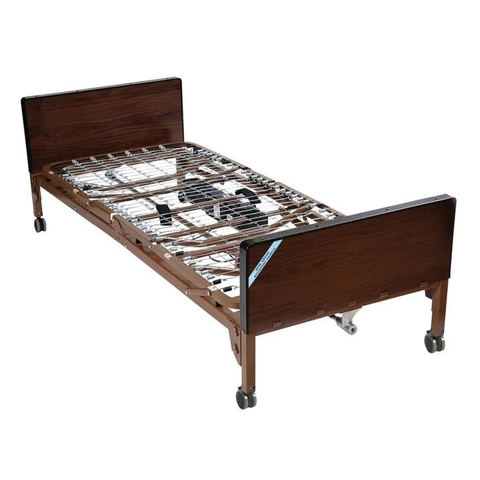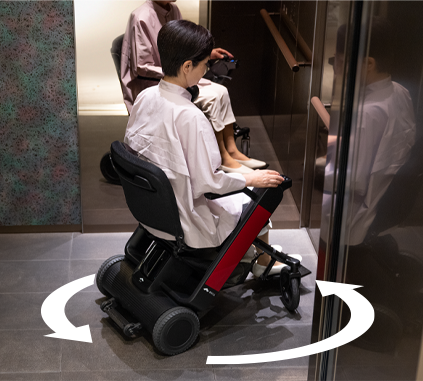
Medical equipment downtime means calamity for all medical agencies; the same goes for the equipment at home. Hospitals and other types of healthcare facilities that rely on technology face serious challenges when a few or all of their machines stop working for one reason or another.
This is because the majority of their machines are used to run tests, store essential patient data, and regulate life-giving operations for certain patients. No facility can afford to have medical equipment malfunction. It doesn't matter if the hospital experiences a loss of power, a malfunction in the equipment, an error, a breach in the hospital's cybersecurity, or anything else: the medical agency equipment must always be operational and available to ensure the patient's health and safety.
The Importance of Doing Routine Maintenance Using Medical Equipment
In highly regulated industries such as healthcare, medical equipment must be serviced regularly to guarantee that it is in good working order, will function faultlessly, and will not compromise patient safety. When dealing with patients' lives, every effort must be made to prevent making mistakes in medicine brought on by faulty or unsuitable equipment.
To protect their costly investments, reduce the number of times they have to call for emergency repairs, and ultimately save lives, healthcare facilities need to rely on reputable service businesses that provide routine maintenance of the parts of medical equipment.
Work orders to be completed on a recurrent basis might be used to manage preventive maintenance. With the help of field service management software, dispatchers have an easier time automatically generating work orders with a certain frequency and assigning those work orders to individual technicians who are out in the field.
Ways to Prevent Medical Equipment Downtime
1. Conduct an Investigation Into the Potential Downtime of the Equipment
Every piece of machinery possesses an innate dependability based on the caliber of its design, the quality of its materials, and the craftsmanship with which it was built. It should come as no surprise that if the equipment is of a higher rate, it will have a greater chance of functioning properly for a greater time. Additional considerations that should be considered in this study include the operation, maintenance, support services, and accessories that should be used.
2. Educate Yourself on the Most Common Causes of Equipment Failure
There are an overwhelming number of potential causes when medical equipment fails. To develop plans for preventative maintenance, medical facilities first need to understand the factors that lead to the breakdown or malfunction of machines. This helps to safeguard the facility's operations.
3. Maintain a Record of the Reasons Why Equipment Breaks Down
Medical organizations must keep a record of why their equipment is failing, even though finding a list of the common reasons discussed above is simple. The best way to take care of equipment will be determined, in large part, by this list.
Every malfunction or breakdown of a machine should be reported, and those working in the medical field should be instructed to do so. When particular device tendencies become obvious, it will be possible to design a plan of action to discover an effective solution.
4. Establish a Program for Preventative Maintenance
It is common knowledge that technological and medical gadgets will eventually fail. As a healthcare facility keeps track of failures and repairs, the information collected might serve as the basis for a program that performs preventive maintenance. In addition, the equipment manufacturer has to offer a selection of maintenance and client service alternatives.
- Educate users of the equipment on the proper ways to operate it
- Offer a program for maintaining batteries
- Ensure that the required accessories are available
- Ensure that the equipment is kept in the appropriate environmental conditions
5. Be Sure to Follow All of the Manufacturer’s Guidelines
Not only do manufacturers provide instructions on how to utilize equipment correctly, but they also provide information on how to maintain it properly. It is always best to follow the manufacturer's guidelines concerning maintenance, whether you are supposed to run regular diagnostics and updates to the firmware and software or you are advised to hire professional technicians for routine inspection and maintenance. In either case, following the manufacturer's guidelines is always best.
This will provide you with the finest opportunity to ensure appropriate function and lifespan, and it will also assist you in avoiding potentially costly snafus should the machinery fail to function properly.
6. Do Internal Maintenance
There are a variety of upkeep and repair responsibilities that the team is probably not trained to complete. However, you might discover that you, the office staff, or the in-house support services (if you're working in a medical setting) can independently handle some of the fundamental upkeep responsibilities.
This may not only help you reduce the amount of downtime that equipment experiences due to difficulties, but it may also help you reduce the costs connected with continuous equipment maintenance.
You need to be aware of what you (or the support personnel at the company) are capable of managing so that you can determine when it is necessary to bring in professional assistance.
Conclusion
It is essential for patient health and safety, as well as compliance with applicable laws, that hospital equipment have an extremely limited amount of downtime. This is vital from both a practical and a legal aspect. This requires you to keep an inventory list current and accessible at all times. Medical organizations' legal compliance will benefit from an inventory list that includes data on equipment failures and follow-ups. This list will also assist in forming a risk management plan.
Sky Medical Supplies is your first choice to rent a hospital bed in Denver, Colorado.